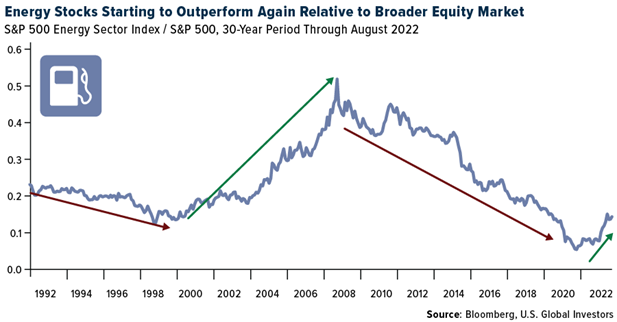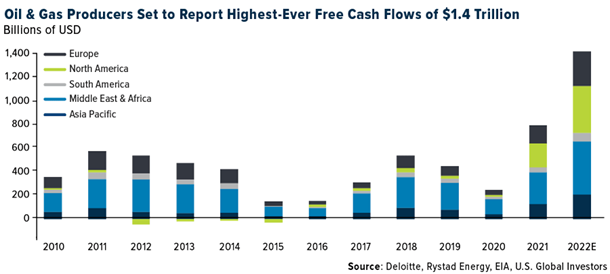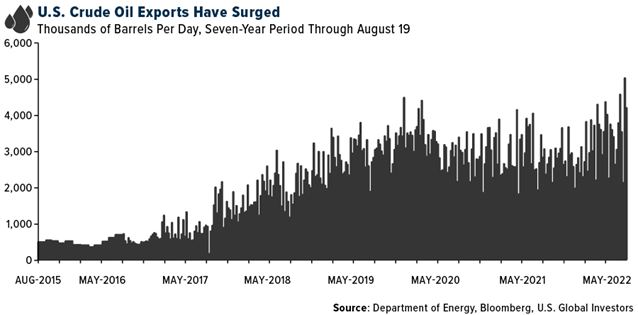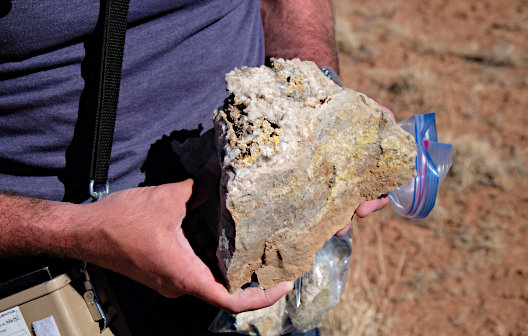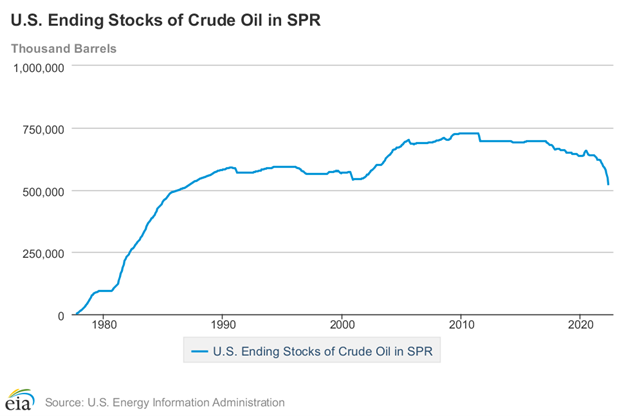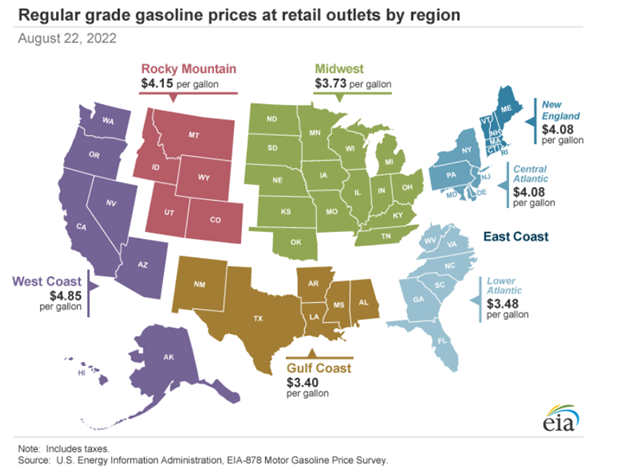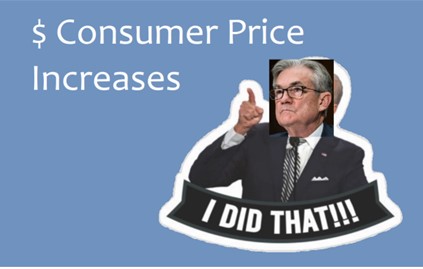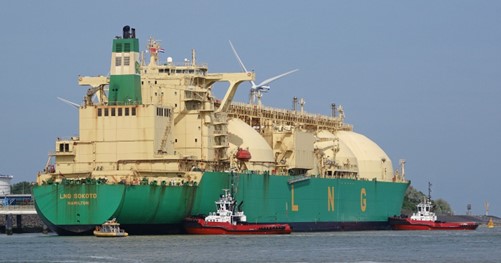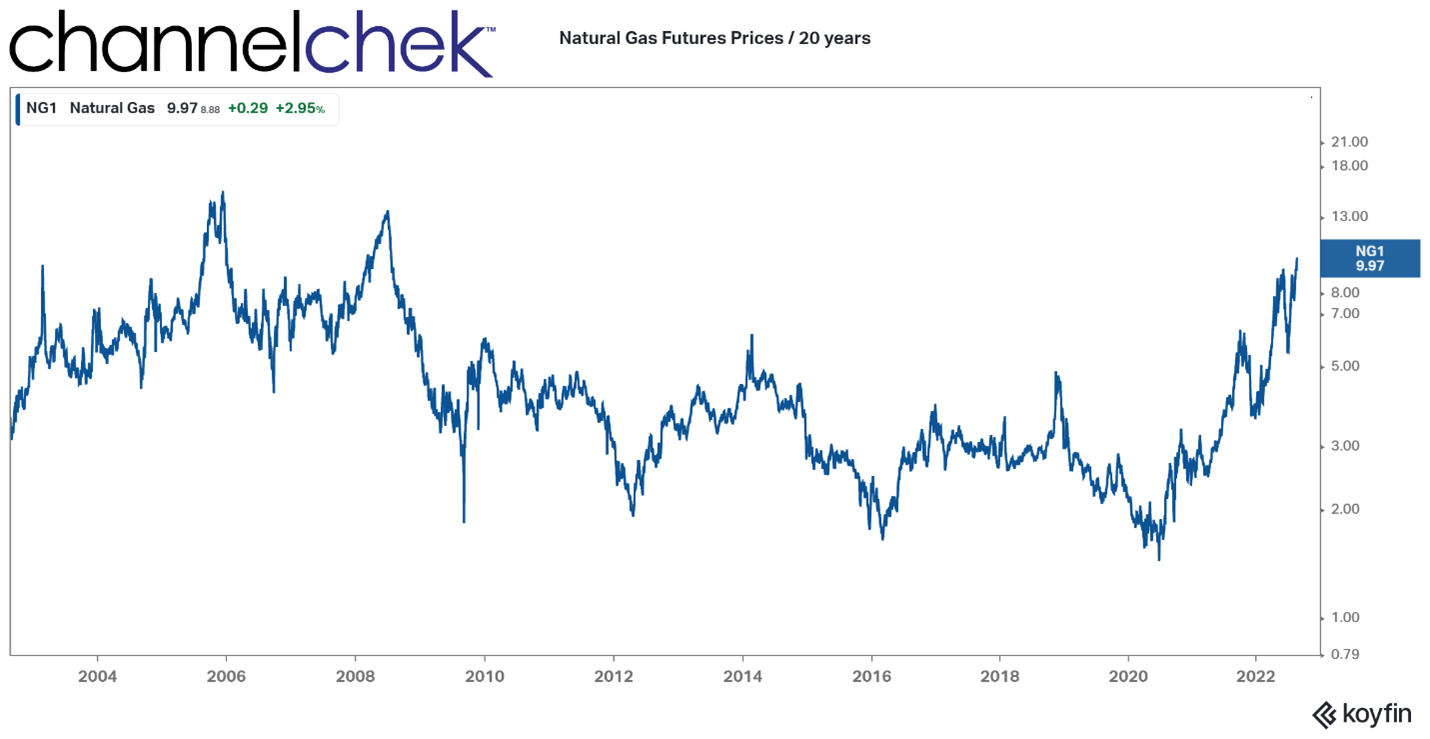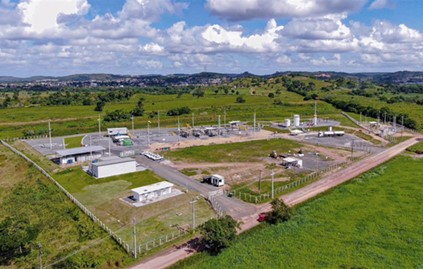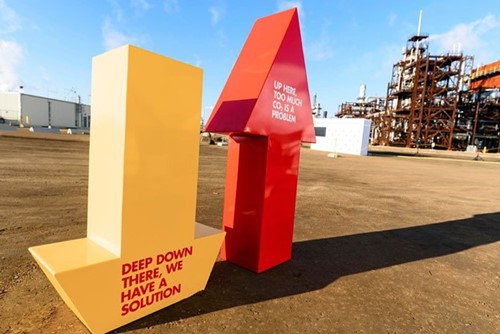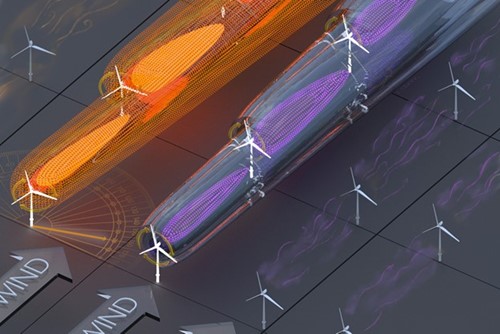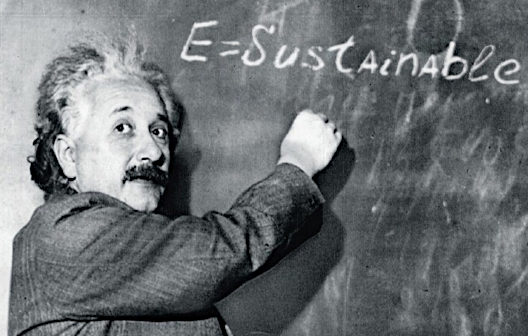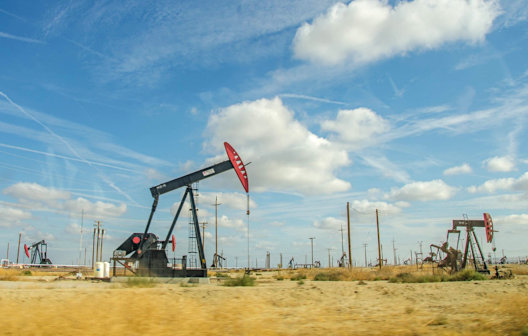
InPlay Oil Corp. Announces Second Quarter 2022 Financial and Operating Results Highlighted by Record Quarterly Production and Financial Results, and a Fully Conforming and Increased Credit Facility
News and Market Data on InPlay Oil Corp
August 11, 2022 08:00 ET | Source: InPlay Oil Corp.
CALGARY, Alberta, Aug. 11, 2022 (GLOBE NEWSWIRE) — InPlay Oil Corp. (TSX: IPO) (OTCQX: IPOOF) (“InPlay” or the “Company”) announces its record setting financial and operating results for the three and six months ended June 30, 2022. InPlay’s condensed unaudited interim financial statements and notes, as well as Management’s Discussion and Analysis (“MD&A”) for the three and six months ended June 30, 2022 will be available at “www.sedar.com” and our website at “www.inplayoil.com”. Our updated corporate presentation will also soon be available on our website.
Second Quarter 2022 Financial & Operating Highlights
- Achieved record average quarterly production of 9,063 boe/d(1) (57% light crude oil and NGLs), an increase of 68% from second quarter production in 2021 of 5,386 boe/d(1) (68% light crude oil and NGLs) and an increase of 10% compared to our previous record of 8,221 boe/d
(1) (59% light crude oil and NGLs) in the first quarter of 2022. Average production per weighted average basic share increased 32% compared to the second quarter of 2021 (43% on a debt adjusted(4) basis) and 10% compared to the first quarter of 2022 (17% on a debt adjusted basis).
- Generated record quarterly adjusted funds flow (“AFF”)(2) of $40.9 million ($0.47 per weighted average basic share(3)), an increase of 398% compared to $8.2 million ($0.12 per weighted average basic share) in the second quarter of 2021 and an increase of 39% compared to $29.4 million ($0.34 per weighted average basic share) in the first quarter of 2022, our prior record quarter.
- Increased operating netbacks(4) by 84% to $61.02/boe from $33.09/boe in the second quarter of 2021 and by 32% compared to $46.06/boe in the first quarter of 2022, our prior record quarter.
- Realized quarterly record operating income(4) and operating income profit margin(4) of $50.3 million and 71% respectively compared to $16.2 million and 64% in the second quarter of 2021; $34.1 million and 65% in the first quarter of 2022, our prior record quarter.
- Reduced operating expenses to $12.28/boe compared to $12.51/boe in the second quarter of 2021 and $12.96/boe in the first quarter of 2022, despite rising costs of services in the industry.
- Generated free adjusted funds flow (“FAFF”)
(4) of $23.1 million, a quarterly record for the Company, resulting in a 31% reduction to net debt from March 31, 2022.
- Achieved a quarterly annualized net debt(2) to earnings before interest, taxes and depletion (“EBITDA”)(4) ratio of 0.3x, compared to 1.9x in the second quarter of 2021 and 0.6x in first quarter of 2022 and a trailing twelve month net debt to EBITDA ratio of 0.5x to June 30, 2022.
- Realized net income of $29.0 million ($0.33 per basic share; $0.32 per diluted share).
Financial and Operating Results:
|
(CDN) ($000’s)
|
Three months ended
June 30
|
Six months ended
June 30
|
|
|
2022
|
|
2021
|
|
2022
|
|
2021
|
|
|
Financial
|
|
|
|
|
|
Oil and natural gas sales
|
71,287
|
|
25,267
|
|
123,444
|
|
45,268
|
|
|
Adjusted funds flow(2)
|
40,922
|
|
8,219
|
|
70,303
|
|
14,324
|
|
|
Per share – basic(3)
|
0.47
|
|
0.12
|
|
0.81
|
|
0.21
|
|
|
Per share – diluted(3)
|
0.45
|
|
0.12
|
|
0.77
|
|
0.21
|
|
|
Per boe(3)
|
49.62
|
|
16.77
|
|
44.93
|
|
15.29
|
|
|
Comprehensive income
|
29,032
|
|
59,127
|
|
47,808
|
|
51,591
|
|
|
Per share – basic
|
0.33
|
|
0.87
|
|
0.55
|
|
0.76
|
|
|
Per share –diluted
|
0.32
|
|
0.85
|
|
0.53
|
|
0.75
|
|
|
Capital expenditures – PP&E and E&E
|
17,850
|
|
4,744
|
|
39,413
|
|
16,954
|
|
|
Property acquisitions (dispositions)
|
–
|
|
(101
|
)
|
(1
|
)
|
(82
|
)
|
|
Corporate acquisitions
|
(20
|
)
|
–
|
|
411
|
|
–
|
|
|
Net debt(2)
|
(50,473
|
)
|
(76,113
|
)
|
(50,473
|
)
|
(76,113
|
)
|
|
Shares outstanding
|
87,138,301
|
|
68,288,616
|
|
87,138,301
|
|
68,288,616
|
|
|
Basic weighted-average shares
|
86,873,664
|
|
68,259,781
|
|
86,662,821
|
|
68,258,207
|
|
|
Diluted weighted-average shares
|
91,282,528
|
|
69,187,825
|
|
90,913,356
|
|
68,687,889
|
|
|
|
|
|
|
|
|
Operational
|
|
|
|
|
|
Daily production volumes
|
|
|
|
|
|
Light and medium crude oil (bbls/d)
|
3,865
|
|
2,942
|
|
3,719
|
|
2,804
|
|
|
Natural gas liquids (bbls/d)
|
1,333
|
|
730
|
|
1,320
|
|
765
|
|
|
Conventional natural gas (Mcf/d)
|
23,191
|
|
10,286
|
|
21,631
|
|
9,643
|
|
|
Total (boe/d)
|
9,063
|
|
5,386
|
|
8,644
|
|
5,177
|
|
|
Realized prices(3)
|
|
|
|
|
|
Light and medium crude oil & NGLs ($/bbls)
|
116.74
|
|
66.46
|
|
107.48
|
|
61.29
|
|
|
Conventional natural gas ($/Mcf)
|
7.61
|
|
3.27
|
|
6.49
|
|
3.25
|
|
|
Total ($/boe)
|
86.44
|
|
51.55
|
|
78.90
|
|
48.31
|
|
|
Operating netbacks ($/boe)(4)
|
|
|
|
|
|
Oil and natural gas sales
|
86.44
|
|
51.55
|
|
78.90
|
|
48.31
|
|
|
Royalties
|
(11.90
|
)
|
(4.83
|
)
|
(11.13
|
)
|
(3.85
|
)
|
|
Transportation expense
|
(1.24
|
)
|
(1.12
|
)
|
(1.22
|
)
|
(1.03
|
)
|
|
Operating costs
|
(12.28
|
)
|
(12.51
|
)
|
(12.60
|
)
|
(13.40
|
)
|
|
Operating netback
|
61.02
|
|
33.09
|
|
53.95
|
|
30.03
|
|
|
Realized (loss) on derivative contracts
|
(6.77
|
)
|
(9.39
|
)
|
(3.95
|
)
|
(8.16
|
)
|
|
Operating netback (including realized derivative contracts)
|
54.25
|
|
23.70
|
|
50.00
|
|
21.87
|
|
Second Quarter 2022 Financial & Operations Overview:
Production averaged 9,063 boe/d(1) (57% light crude oil & NGLs) of sales in the second quarter of 2022, not including over 5,000 bbls of light crude oil inventory build (equal to over 55 bbls/d during the quarter) that was not sold due to difficulty trucking oil as a result of wet weather at the end of June. NGL’s were slightly lower than expected in the quarter due to certain third party facilities having leaner liquids cuts in the quarter. Production increased by 68% compared to 5,386 boe/d(1) (68% light crude oil & NGLs) in the second quarter of 2021 and 10% compared to 8,221 boe/d(1) (59% light crude oil & NGLs) in the first quarter of 2022. This resulted in a quarterly record $40.9 million of AFF generated during the second quarter of 2022 and $23.1 million in FAFF which reduced net debt levels by 31% from March 31, 2022 to $50.5 million at June 30, 2022. Liquidity ratios to the end of the quarter improved significantly resulting in a quarterly annualized net debt to EBITDA ratio of 0.3x and a trailing twelve month net debt to EBITDA ratio of 0.5x to June 30, 2022.
InPlay’s capital program for the second quarter of 2022 consisted of $17.8 million of capital expenditures. During the quarter, InPlay drilled three (3.0 net) 1.5 mile Extended Reach Horizontal (“ERH”) wells in Pembina which were completed and tied in and came on production at the end of May. The Company also finished the drilling operations of an additional two (1.9 net) 2 mile ERH wells in Willesden Green. Completions of these wells was delayed due to the wet weather in June but have now been completed and are in the early cleanup phase. Construction of a modular multi-well facility in Willesden Green began during the quarter to accommodate current and future drilling in the area.
As a result of using a consistent drill crew since the beginning of the year and exceptional project execution, the two 2 mile ERH wells in Willesden Green were drilled in 10.3 and 10.7 days respectively, which were among the fastest drilling operations for 2 mile wells in the area. In comparison to the last 2 mile wells drilled by the Company in Willesden Green in 2018, drilling times improved by approximately 20% which is a positive result for the Company and is an example of InPlay’s continuous drive to achieve operational efficiencies.
Efficient field operations and increased production levels resulted in the Company achieving lower operating expenses of $12.28/boe compared to $12.51/boe in the second quarter of 2021 and $12.96/boe in the first quarter of 2022. This is a significant achievement given the inflationary pressures and supply chain disruptions facing our industry. The resulting operating income and operating income profit margin for the second quarter of 2022 were quarterly records for the Company at $50.3 million and 71% respectively.
Credit Facilities
InPlay is pleased to announce that it has entered into an amended credit facility with its first-lien and second-lien lenders resulting in a fully conforming revolving credit facility with an increased total lending capacity and borrowing base of $110 million. InPlay’s credit facility is now comprised of a $100 million revolving credit facility and a $10 million operating line of credit (together, the “Credit Facility”). The term out date of the Credit Facility has been extended to May 30, 2023 with a maturity date of May 30, 2024. As part of the renegotiated Credit Facility, the Company’s previously outstanding $25 million term facility with the Business Development Bank of Canada (“BDC”) and the remaining $14 million of its senior term facility have been repaid.
InPlay is also pleased to announce that Canadian Western Bank (“CWB”) and BDC have joined ATB Financial as members of the amended Credit Facility syndicate.
The outcome of the Credit Facility redetermination is an extremely positive result for the Company and is anticipated to reduce overall interest costs and provide InPlay with a stable liquidity position.
Outlook
The Company’s strategy has been focused on delivering measured but top-tier production growth amongst our light oil peers while seeking to maximize FAFF which has been used to reduce debt and leverage ratios. Results from our high quality asset base has allowed us to exceed our expectations with production growth per share of 32% (43% on a debt adjusted per share basis) in the past year. Strong and record setting operational and financial performance combined with continued commodity price strength has placed InPlay well ahead of schedule in the reduction of debt levels. The Company has achieved a 0.5x trailing twelve months net debt to EBITDA ratio in the second quarter of 2022 with expectations of leverage ratios continuing to drop throughout the balance of the year based on current commodity prices.
Although the world economic picture and energy prices remain volatile, the Company finds itself in the best operational and financial position in our history. We believe that a target of approximately 0.5x trailing twelve months net debt to EBITDA is a prudent leverage ratio in a higher commodity price environment and will provide the Company significant financial flexibility in a volatile pricing environment. Having achieved this target and with leverage continuing to drop, the Company is now evaluating a potential return of capital to shareholders, while continuing to pursue other accretive acquisition opportunities, with the ultimate goal of strong overall returns to shareholders.
Wet weather in late June delayed the start of our third quarter capital program. The program is now well underway with drilling operations ongoing on the third well of a three (2.9 net) ERH well pad in Willesden Green which is expected to be on production in late August. The drilling operations of an additional two (1.9 net) ERH wells in Willesden Green are planned for the third quarter which are expected to be on production late in September. The Company’s third quarter drilling program is in an area with anticipated higher oil weightings which is expected to result in increased liquids percentages into the second half of the year.
As a result of the strong operational results to date, the Company’s previously released 2022 guidance(5) is reiterated with annual average production anticipated to be 8,900 to 9,400 boe/d(1).
InPlay plans on releasing our inaugural sustainability report in September. In addition, an operational update, a long range forecast, and an update on the evaluation of a potential return to shareholders is expected to be released in September.
Management would like to thank our employees, board members, lenders and shareholders for their support and we look forward to continuing our journey of deleveraging and delivering strong returns to shareholders in a sustainable, prudent and responsible manner.
For further information please contact:
|
Doug Bartole
President and Chief Executive Officer
InPlay Oil Corp.
Telephone: (587) 955-0632
|
Darren Dittmer
Chief Financial Officer
InPlay Oil Corp.
Telephone: (587) 955-0634
|
Notes:
- See “Production Breakdown by
Product Type” at the end of this press release.
- Capital management measure. See
“Non-GAAP and Other Financial Measures” contained within this press
release.
- Supplementary financial measure.
See “Non-GAAP and Other Financial Measures” contained within this press
release.
- Non-GAAP financial measure or ratio
that does not have a standardized meaning under International Financial
Reporting Standards (IFRS) and GAAP and therefore may not be comparable
with the calculations of similar measures for other companies. Please
refer to “Non-GAAP and Other Financial Measures” contained within this
press release.
- See “Reader Advisories – Forward
Looking Information and Statements” and InPlay’s press release dated May
11, 2022 for full details and key budget and underlying assumptions
related to our 2022 capital program and associated guidance.
Reader Advisories
Non-GAAP and Other Financial Measures
Throughout this press release and other materials disclosed by the Company, InPlay uses certain measures to analyze financial performance, financial position and cash flow. These non-GAAP and other financial measures do not have any standardized meaning prescribed under GAAP and therefore may not be comparable to similar measures presented by other entities. The non-GAAP and other financial measures should not be considered alternatives to, or more meaningful than, financial measures that are determined in accordance with GAAP as indicators of the Company performance. Management believes that the presentation of these non-GAAP and other financial measures provides useful information to shareholders and investors in understanding and evaluating the Company’s ongoing operating performance, and the measures provide increased transparency and the ability to better analyze InPlay’s business performance against prior periods on a comparable basis.
Non-GAAP Financial Measures and Ratios
Included in this document are references to the terms “free adjusted funds flow (“FAFF”)”, “operating income”, “operating netback per boe”, “operating income profit margin”, “Net Debt to EBITDA” and “Debt adjusted production per share”. Management believes these measures and ratios are helpful supplementary measures of financial and operating performance and provide users with similar, but potentially not comparable, information that is commonly used by other oil and natural gas companies. These terms do not have any standardized meaning prescribed by GAAP and should not be considered an alternative to, or more meaningful than “profit (loss) before taxes”, “profit (loss) and comprehensive income (loss)”, “adjusted funds flow”, “capital expenditures”, “corporate acquisitions, net of cash acquired”, “net debt”, “weighted average number of common shares (basic)” or assets and liabilities as determined in accordance with GAAP as a measure of the Company’s performance and financial position.
Free Adjusted Funds Flow
Management considers free adjusted funds flow (“FAFF”) and FAFF per share important measures to identify the Company’s ability to improve its financial condition through debt repayment, which has become more important recently with the introduction of second lien lenders, on an absolute and weighted average per share basis. FAFF should not be considered as an alternative to or more meaningful than AFF as determined in accordance with GAAP as an indicator of the Company’s performance. FAFF is calculated by the Company as AFF less exploration and development capital expenditures and property dispositions (acquisitions) and is a measure of the cashflow remaining after capital expenditures before corporate acquisitions that can be used for additional capital activity, corporate acquisitions, repayment of debt or decommissioning expenditures or potentially return of capital to shareholders. FAFF per share is calculated by the Company as FAFF divided by weighted average outstanding shares. Refer below for a calculation of historical FAFF and to the “Forward Looking Information and Statements” section for a calculation of forecast FAFF.
|
(thousands of dollars)
|
|
|
|
Three Months Ended
June 30
|
Six Months Ended
June 30
|
|
|
|
|
|
2022
|
|
|
2021
|
|
2022
|
|
2021
|
|
|
Adjusted funds flow
|
|
|
|
40,922
|
|
|
8,219
|
|
70,303
|
|
14,324
|
|
|
Exploration and dev. capital expenditures
|
|
|
|
(17,850
|
)
|
|
(4,744
|
)
|
(39,413
|
)
|
(16,954
|
)
|
|
Property dispositions (acquisitions)
|
|
|
|
–
|
|
|
101
|
|
1
|
|
82
|
|
|
Free adjusted funds flow
|
|
|
|
23,072
|
|
|
3,576
|
|
30,891
|
|
(2,548
|
)
|
Operating Income/Operating Netback per boe/Operating Income Profit Margin
InPlay uses “operating income”, “operating netback per boe” and “operating income profit margin” as key performance indicators. Operating income is calculated by the Company as oil and natural gas sales less royalties, operating expenses and transportation expenses and is a measure of the profitability of operations before administrative, share-based compensation, financing and other non-cash items. Management considers operating income an important measure to evaluate its operational performance as it demonstrates its field level profitability. Operating income should not be considered as an alternative to or more meaningful than net income as determined in accordance with GAAP as an indicator of the Company’s performance. Operating netback per boe is calculated by the Company as operating income divided by average production for the respective period. Management considers operating netback per boe an important measure to evaluate its operational performance as it demonstrates its field level profitability per unit of production. Operating income profit margin is calculated by the Company as operating income as a percentage of oil and natural gas sales. Management considers operating income profit margin an important measure to evaluate its operational performance as it demonstrates how efficiently the Company generates field level profits from its sales revenue. Refer below for a calculation of operating income, operating netback per boe and operating income profit margin.
|
(thousands of dollars)
|
Three Months Ended
June 30
|
Six Months Ended
June 30
|
|
|
2022
|
|
2021
|
|
2022
|
|
2021
|
|
|
Revenue
|
71,287
|
|
25,267
|
|
123,444
|
|
45,268
|
|
|
Royalties
|
(9,811
|
)
|
(2,366
|
)
|
(17,410
|
)
|
(3,611
|
)
|
|
Operating expenses
|
(10,125
|
)
|
(6,129
|
)
|
(19,713
|
)
|
(12,551
|
)
|
|
Transportation expenses
|
(1,021
|
)
|
(547
|
)
|
(1,914
|
)
|
(965
|
)
|
|
Operating income (2)
|
50,330
|
|
16,225
|
|
84,407
|
|
28,141
|
|
|
|
|
|
|
|
|
Sales volume (Mboe)
|
824.7
|
|
490.1
|
|
1,564.6
|
|
937.0
|
|
|
Per boe
|
|
|
|
|
|
Revenue
|
86.44
|
|
51.55
|
|
78.90
|
|
48.31
|
|
|
Royalties
|
(11.90
|
)
|
(4.83
|
)
|
(11.13
|
)
|
(3.85
|
)
|
|
Operating expenses
|
(12.28
|
)
|
(12.51
|
)
|
(12.60
|
)
|
(13.40
|
)
|
|
Transportation expenses
|
(1.24
|
)
|
(1.12
|
)
|
(1.22
|
)
|
(1.03
|
)
|
|
Operating netback per boe
|
61.02
|
|
33.09
|
|
53.95
|
|
30.03
|
|
|
Operating income profit margin
|
71%
|
|
64%
|
|
68%
|
|
62%
|
|
Net Debt to EBITDA
Management considers Net Debt to EBITDA an important measure as it is a key metric to identify the Company’s ability to fund financing expenses, net debt reductions and other obligations. EBITDA is calculated by the Company as adjusted funds flow before interest expense. When this measure is presented quarterly, EBITDA is annualized by multiplying by four. When this measure is presented on a trailing twelve month basis, EBITDA for the twelve months preceding the net debt date is used in the calculation. This measure is consistent with the EBITDA formula prescribed under the Company’s Senior Credit Facility. Net Debt to EBITDA is calculated as Net Debt divided by EBITDA. Refer to the “Forward Looking Information and Statements” section for a calculation of forecast Net Debt to EBITDA.
Production per Debt Adjusted Share
InPlay uses “Production per debt adjusted share” as a key performance indicator. Debt adjusted shares should not be considered as an alternative to or more meaningful than common shares as determined in accordance with GAAP as an indicator of the Company’s performance. Debt adjusted shares is a non-GAAP measure used in the calculation of Production per debt adjusted share and is calculated by the Company as common shares outstanding plus the change in net debt divided by the Company’s current trading price on the TSX, converting net debt to equity. Debt adjusted shares should not be considered as an alternative to or more meaningful than weighted average number of common shares (basic) as determined in accordance with GAAP as an indicator of the Company’s performance. Management considers Debt adjusted share is a key performance indicator as it adjusts for the effects of capital structure in relation to the Company’s peers. Production per debt adjusted share is calculated by the Company as production divided by debt adjusted shares. Management considers Production per debt adjusted share is a key performance indicator as it adjusts for the effects of changes in annual production in relation to the Company’s capital structure. Refer below for a calculation of Production per debt adjusted share.
|
|
|
|
|
Three Months Ended
June 30
|
|
|
|
|
|
|
2022
|
|
|
|
2021
|
|
Production
|
|
|
Boe/d
|
|
9,063
|
|
|
|
5,386
|
|
Net Debt
|
|
|
$ millions
|
$
|
50.5
|
|
|
$
|
76.1
|
|
Weighted average outstanding shares
|
|
|
# millions
|
|
86.9
|
|
|
|
68.3
|
|
Assumed Share price(2)
|
|
|
$
|
|
4.00
|
|
|
|
|
Production per debt adjusted share growth(2)
|
|
|
|
|
43%
|
|
|
|
|
|
|
|
|
Three Months Ended
|
|
|
|
|
|
June
30,
2022
|
|
March 31,
2022
|
|
Production
|
|
|
Boe/d
|
|
9,063
|
|
|
|
8,221
|
|
Net Debt
|
|
|
$ millions
|
$
|
50.5
|
|
|
$
|
73.4
|
|
Weighted average outstanding shares
|
|
|
# millions
|
|
86.9
|
|
|
|
86.4
|
|
Assumed Share price(2)
|
|
|
$
|
|
4.00
|
|
|
|
|
Production per debt adjusted share growth(2)
|
|
|
|
|
17%
|
|
|
|
|
(1)
|
Production per debt adjusted share is calculated by the Company as production divided by debt adjusted shares. Debt adjusted shares is calculated by the Company as common shares outstanding plus the change in net debt divided by the Company’s current trading price on the TSX, converting net debt to equity.
|
|
(2)
|
Weighted average share price throughout the second quarter of 2022.
|
Capital Management Measures
Adjusted Funds Flow
Management considers adjusted funds flow to be an important measure of InPlay’s ability to generate the funds necessary to finance capital expenditures. Adjusted funds flow (“AFF”) is a GAAP measure and is disclosed in the notes to the Company’s consolidated financial statements for the year ending December 31, 2021 and the most recently filed quarterly financial statements. All references to AFF throughout this document are calculated as funds flow adjusting for decommissioning expenditures and transaction and integration costs. This item is adjusted from funds flow as decommissioning expenditures are incurred on a discretionary and irregular basis and are primarily incurred on previous operating assets and transaction costs are non-recurring costs for the purposes of an acquisition, making the exclusion of these items relevant in Management’s view to the reader in the evaluation of InPlay’s operating performance. The Company also presents AFF per share whereby per share amounts are calculated using weighted average shares outstanding consistent with the calculation of profit (loss) per common share.
Net Debt
Net debt is a GAAP measure and is disclosed in the notes to the Company’s consolidated financial statements for the year ending December 31, 2021 and the most recently filed quarterly financial statements. The Company closely monitors its capital structure with a goal of maintaining a strong balance sheet to fund the future growth of the Company. The Company monitors net debt as part of its capital structure. The Company uses net debt (bank debt plus accounts payable and accrued liabilities less accounts receivables and accrued receivables, prepaid expenses and deposits and inventory) as an alternative measure of outstanding debt. Management considers net debt an important measure to assist in assessing the liquidity of the Company.
Supplementary Measures
“Average realized crude oil price” is comprised of crude oil commodity sales from production, as determined in accordance with IFRS, divided by the Company’s crude oil production. Average prices are before deduction of transportation costs and do not include gains and losses on financial instruments.
“Average realized NGL price” is comprised of NGL commodity sales from production, as determined in accordance with IFRS, divided by the Company’s NGL production. Average prices are before deduction of transportation costs and do not include gains and losses on financial instruments.
“Average realized natural gas price” is comprised of natural gas commodity sales from production, as determined in accordance with IFRS, divided by the Company’s natural gas production. Average prices are before deduction of transportation costs and do not include gains and losses on financial instruments.
“Average realized commodity price” is comprised of commodity sales from production, as determined in accordance with IFRS, divided by the Company’s production. Average prices are before deduction of transportation costs and do not include gains and losses on financial instruments.
“AFF per weighted average basic share” is comprised of AFF divided by the basic weighted average common shares.
“AFF per weighted average diluted share” is comprised of AFF divided by the diluted weighted average common shares.
“AFF per boe” is comprised of AFF divided by total production.
Forward-Looking Information and Statements
This news release contains certain forward–looking information and statements within the meaning of applicable securities laws. The use of any of the words “expect”, “anticipate”, “continue”, “estimate”, “may”, “will”, “project”, “should”, “believe”, “plans”, “intends”, “forecast”, “targets”, “framework” and similar expressions are intended to identify forward-looking information or statements. In particular, but without limiting the foregoing, this news release contains forward looking information and statements pertaining to the following: the Company’s business strategy, milestones and objectives including, without limitation, the anticipated continuation of debt reduction the anticipated impact of the redetermined Credit Facility; improved leverage ratios and generation of FAFF; the Company’s targeted net debt to EBITDA ratio of 0.5 times; future intentions regarding the implementation of a return of capital program and the timing thereof; statements regarding the Company’s plans or expectations for the initiation of a potential dividend, the reaching of targets and satisfaction of conditions thereto and the amount and timing thereof; expectations regarding future commodity prices; future oil and natural gas prices; future liquidity and financial capacity; future results from operations and operating metrics; future costs, expenses and royalty rates; future interest costs; the exchange rate between the $US and $Cdn; future development, exploration, acquisition, development and infrastructure activities and related capital expenditures, including our planned 2022 capital program and associated guidance.
Without limitation of the foregoing, readers are cautioned that the Company’s return to shareholders framework including future dividend payments to shareholders of the Company, if any, and the level thereof remains uncertain and accordingly management’s expectations related thereto should not be unduly relied upon. The Company’s dividend policy and funds available for the payment of dividends, if any, from time to time, is dependent upon, among other things, levels of FAFF, leverage ratios, financial requirements for the Company’s operations and execution of its growth strategy, fluctuations in commodity prices and working capital, the timing and amount of capital expenditures, credit facility availability and limitations on distributions existing thereunder, and other factors beyond the Company’s control. Further, the ability of the Company to implement a return to shareholder program will be subject to applicable laws, including satisfaction of solvency tests under the ABCA, and satisfaction of certain applicable contractual restrictions contained in the agreements governing the Company’s outstanding indebtedness.
Forward-looking statements or information are based on a number of material factors, expectations or assumptions of InPlay which have been used to develop such statements and information but which may prove to be incorrect. Although InPlay believes that the expectations reflected in such forward looking statements or information are reasonable, undue reliance should not be placed on forward-looking statements because InPlay can give no assurance that such expectations will prove to be correct. In addition to other factors and assumptions which may be identified herein, assumptions have been made regarding, among other things: the impact of increasing competition; the general stability of the economic and political environment in which InPlay operates; the timely receipt of any required regulatory approvals; the ability of InPlay to obtain qualified staff, equipment and services in a timely and cost efficient manner; drilling results; the ability of the operator of the projects in which InPlay has an interest in to operate the field in a safe, efficient and effective manner; the ability of InPlay to obtain debt financing on acceptable terms and the anticipated lifting of certain restrictions on the payment of distributions to shareholders which currently exist thereunder; field production rates and decline rates; the ability to replace and expand oil and natural gas reserves through acquisition, development and exploration; the timing and cost of pipeline, storage and facility construction and the ability of InPlay to secure adequate product transportation; future commodity prices; that various conditions to a shareholder return strategy can be satisfied; expectations regarding the potential impact of COVID-19 and the Russia/Ukraine conflict; currency, exchange and interest rates; regulatory framework regarding royalties, taxes and environmental matters in the jurisdictions in which InPlay operates; and the ability of InPlay to successfully market its oil and natural gas products. The forward-looking information and statements included herein are not guarantees of future performance and should not be unduly relied upon. Such information and statements, including the assumptions made in respect thereof, involve known and unknown risks, uncertainties and other factors that may cause actual results or events to defer materially from those anticipated in such forward-looking information or statements including, without limitation: the continuing impact of the COVID-19 pandemic and the Russia/Ukraine conflict; changes in our planned 2022 capital program; changes in commodity prices and other assumptions outlined herein; the risk that the Company is unable to implement a return to shareholder strategy or, if implemented, the risk that dividend payments thereunder may be reduced, suspended or cancelled; the potential for variation in the quality of the reservoirs in which we operate; changes in the demand for or supply of our products; unanticipated operating results or production declines; changes in tax or environmental laws, royalty rates or other regulatory matters; changes in development plans or strategies of InPlay or by third party operators of our properties; changes in our credit structure, increased debt levels or debt service requirements; inaccurate estimation of our light crude oil and natural gas reserve and resource volumes; limited, unfavorable or a lack of access to capital markets; increased costs; a lack of adequate insurance coverage; the impact of competitors; and certain other risks detailed from time-to-time in InPlay’s continuous disclosure documents filed on SEDAR including our Annual Information Form and our MD&A.
This press release contains future-oriented financial information and financial outlook information (collectively, “FOFI”) about InPlay’s financial and leverage targets and objectives, and potential dividends and share buybacks, all of which are subject to the same assumptions, risk factors, limitations, and qualifications as set forth in the above paragraphs. The actual results of operations of InPlay and the resulting financial results will likely vary from the amounts set forth in this press release and such variation may be material. InPlay and its management believe that the FOFI has been prepared on a reasonable basis, reflecting management’s best estimates and judgments. However, because this information is subjective and subject to numerous risks, it should not be relied on as necessarily indicative of future results. Except as required by applicable securities laws, InPlay undertakes no obligation to update such FOFI. FOFI contained in this press release was made as of the date of this press release and was provided for the purpose of providing further information about InPlay’s anticipated future business operations and strategy. Readers are cautioned that the FOFI contained in this press release should not be used for purposes other than for which it is disclosed herein.
The forward-looking information and statements contained in this news release speak only as of the date hereof and InPlay does not assume any obligation to publicly update or revise any of the included forward-looking statements or information, whether as a result of new information, future events or otherwise, except as may be required by applicable securities laws.
The key budget and underlying material assumptions used by the Company in the development of its 2022 guidance including forecasted production, operating income, capital expenditures, AFF, FAFF, FAFF yield, Net Debt, Net Debt/EBITDA, EV/DAAFF, production per debt adjusted share growth are as follows:
|
|
|
Actuals
FY 2021
|
Guidance
FY 2022(1)
|
|
WTI
|
US$/bbl
|
$67.91
|
$95.40
|
|
NGL Price
|
$/boe
|
$37.79
|
$47.80
|
|
AECO
|
$/GJ
|
$3.44
|
$6.00
|
|
Foreign Exchange Rate
|
CDN$/US$
|
0.80
|
0.79
|
|
MSW Differential
|
US$/bbl
|
$3.88
|
$2.70
|
|
Production
|
Boe/d
|
5,768
|
8,900 – 9,400
|
|
Royalties
|
$/boe
|
5.51
|
11.50 – 13.00
|
|
Operating Expenses
|
$/boe
|
12.83
|
11.00 – 14.00
|
|
Transportation
|
$/boe
|
1.11
|
1.05 – 1.30
|
|
Interest
|
$/boe
|
2.67
|
0.85 – 1.25
|
|
General and Administrative
|
$/boe
|
2.83
|
2.40 – 2.95
|
|
Hedging loss
|
$/boe
|
6.20
|
1.85 – 2.15
|
|
Decommissioning Expenditures
|
$ millions
|
$1.4
|
$2.0 – $2.5
|
|
Adjusted Funds Flow
|
$ millions
|
$47.0
|
$147 – $156
|
|
Weighted average outstanding shares
|
# millions
|
69.8
|
86.5
|
|
Adjusted Funds Flow per share
|
$/share
|
0.67
|
1.70 – 1.80
|
|
|
|
Actuals
FY 2021
|
Guidance
FY 2022(1)
|
|
Adjusted Funds Flow
|
$ millions
|
$47.0
|
$147 – $156
|
|
Capital Expenditures
|
$ millions
|
$33.3
|
$64.0
|
|
Free Adjusted Funds Flow
|
$ millions
|
$13.6
|
$83 – $92
|
|
Shares outstanding, end of year
|
# millions
|
86.2
|
86.5
|
|
Assumed Share Price
|
$
|
2.18(3)
|
3.66
|
|
Market capitalization
|
$ millions
|
$188
|
$317
|
|
FAFF Yield
|
%
|
7%
|
26% – 29%
|
|
|
|
Actuals
FY 2021
|
Guidance
FY 2022(1)
|
|
Adjusted Funds Flow
|
$ millions
|
$47.0
|
$147 – $156
|
|
Interest
|
$/boe
|
2.67
|
0.85 – 1.25
|
|
EBITDA
|
$ millions
|
$52.6
|
$150 – $159
|
|
Net Debt/(Positive working capital)
|
$ millions
|
$80.2
|
($1) – ($10)
|
|
Net Debt/EBITDA
|
|
1.5
|
0.0 – 0.1
|
|
|
|
Actuals
Q2 2021
|
Guidance
Q2 2022(1)
|
Actuals
Q2 2022
|
|
Adjusted Funds Flow
|
$ millions
|
$8.2
|
$37 – $40
|
$40.9
|
|
Interest
|
$/boe
|
3.27
|
1.00 – 1.25
|
1.56
|
|
EBITDA
|
$ millions
|
$9.8
|
$38 – $41
|
$42.2
|
|
Annualized EBITDA
|
$ millions
|
$39.2
|
$154 – $162
|
$168.8
|
|
Net Debt
|
$ millions
|
$76.1
|
$50 – $53
|
$50.5
|
|
Net Debt/EBITDA
|
|
1.9
|
0.3
|
0.3
|
|
|
|
Actuals
FY 2021
|
Guidance
FY 2022(1)
|
|
Production
|
Boe/d
|
5,768
|
8,900 – 9,400
|
|
Opening Net Debt
|
$ millions
|
$73.7
|
$80.2
|
|
Ending Net Debt/(Positive working capital)
|
$ millions
|
$80.2
|
($1) – ($10)
|
|
Weighted average outstanding shares
|
# millions
|
69.8
|
86.5
|
|
Assumed Share price
|
$
|
1.16(4)
|
3.66
|
|
Production per debt adjusted share growth(2)
|
|
31%
|
70% – 80%
|
|
|
|
Actuals
FY 2021
|
Guidance
FY 2022(1)
|
|
Share outstanding, end of year
|
# millions
|
86.2
|
86.5
|
|
Assumed Share price
|
$
|
2.18(3)
|
3.66
|
|
Market capitalization
|
$ millions
|
$188
|
$317
|
|
Net Debt/(Positive working capital)
|
$ millions
|
$80.2
|
($1) – ($10)
|
|
Enterprise value
|
$millions
|
$268.2
|
$307 – $316
|
|
Adjusted Funds Flow
|
$ millions
|
$44.1
|
$147 – $156
|
|
Interest
|
$/boe
|
2.67
|
0.85 – 1.25
|
|
Debt Adjusted AFF
|
$ millions
|
$49.7
|
$151 – $160
|
|
EV/DAAFF
|
|
5.4
|
1.9 – 2.1
|
|
(1)
|
As previously released May 11, 2022.
|
|
|
|
|
(2)
|
Production per debt adjusted share is calculated by the Company as production divided by debt adjusted shares. Debt adjusted shares is calculated by the Company as common shares outstanding plus the change in net debt divided by the Company’s current trading price on the TSX, converting net debt to equity. Share price at December 31, 2022 is assumed to be consistent with the current share price.
|
|
|
|
|
(3)
|
Ending share price at December 31, 2021.
|
|
|
|
|
(4)
|
Weighted average share price throughout 2021.
|
- See “Production Breakdown by Product Type” below
- Quality and pipeline transmission adjustments may impact realized oil prices in addition to the MSW Differential provided above
- Changes in working capital are not assumed to have a material impact between Dec 31, 2021 and Dec 31, 2022.
Test Results and Initial Production (“IP”) Rates
Test results and initial production rates disclosed herein, particularly those short in duration, may not necessarily be indicative of long term performance or of ultimate recovery. A pressure transient analysis or well-test interpretation has not been carried out and thus certain of the test results provided herein should be considered to be preliminary until such analysis or interpretation has been completed.
Production Breakdown by Product Type
Disclosure of production on a per boe basis in this press release consists of the constituent product types as defined in NI 51-101 and their respective quantities disclosed in the table below:
|
|
Light
and Medium
Crude oil
(bbls/d)
|
|
NGLS
(boe/d)
|
|
Conventional
Natural gas
(Mcf/d)
|
|
Total
(boe/d)
|
|
Q1 2021 Average Production
|
2,665
|
|
802
|
|
8,994
|
|
4,965
|
|
Q2 2021 Average Production
|
2,942
|
|
730
|
|
10,286
|
|
5,386
|
|
2021 Average Production
|
2,981
|
|
782
|
|
12,030
|
|
5,768
|
|
Q1 2022 Average Production
|
3,571
|
|
1,307
|
|
20,054
|
|
8,221
|
|
Q2 2022 Average Production
|
3,865
|
|
1,333
|
|
23,191
|
|
9,063
|
|
2022 Annual Guidance
|
4,320
|
|
1,311
|
|
21,114
|
|
9,150(1)
|
Notes:
- This reflects the mid-point of the
Company’s 2022 production guidance range of 8,900 to 9,400 boe/d.
- With respect to forward-looking
production guidance, product type breakdown is based upon management’s
expectations based on reasonable assumptions but are subject to
variability based on actual well results.
References to crude oil, NGLs or natural gas production in this press release refer to the light and medium crude oil, natural gas liquids and conventional natural gas product types, respectively, as defined in National Instrument 51-101, Standards of Disclosure for Oil and Gas Activities (“Nl 51-101”).
BOE Equivalent
Barrel of oil equivalents or BOEs may be misleading, particularly if used in isolation. A BOE conversion ratio of 6 mcf: 1 bbl is based on an energy equivalency conversion method primarily applicable at the burner tip and does not represent a value equivalency at the wellhead. Given that the value ratio based on the current price of crude oil as compared to natural gas is significantly different than the energy equivalency of 6:1, utilizing a 6:1 conversion basis may be misleading as an indication of value.



